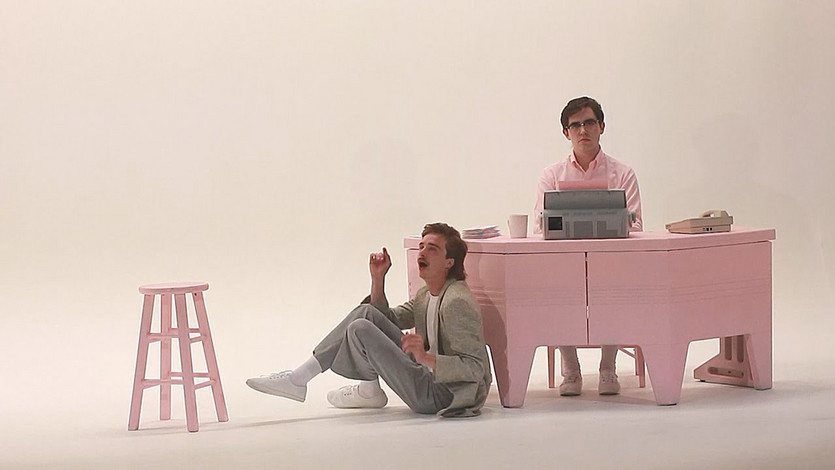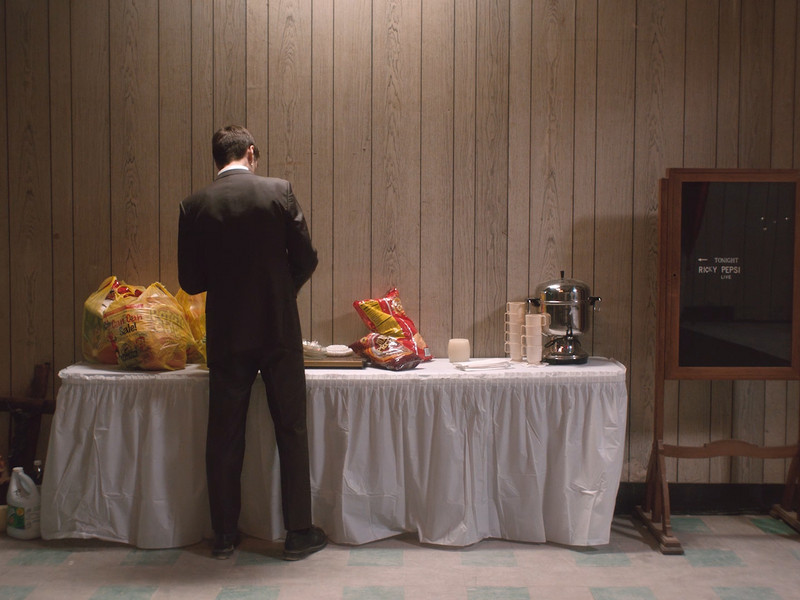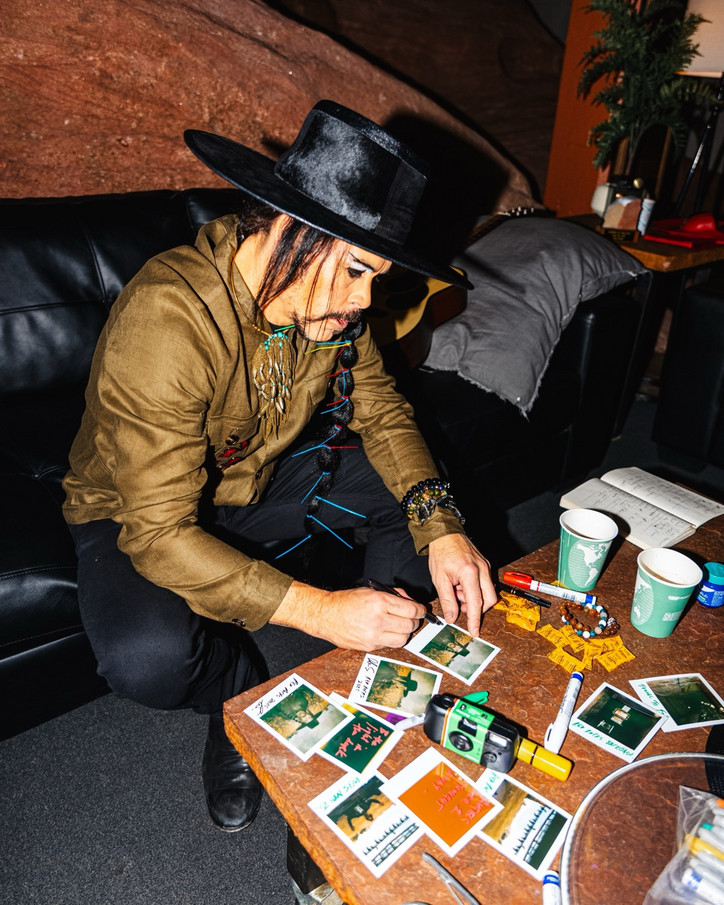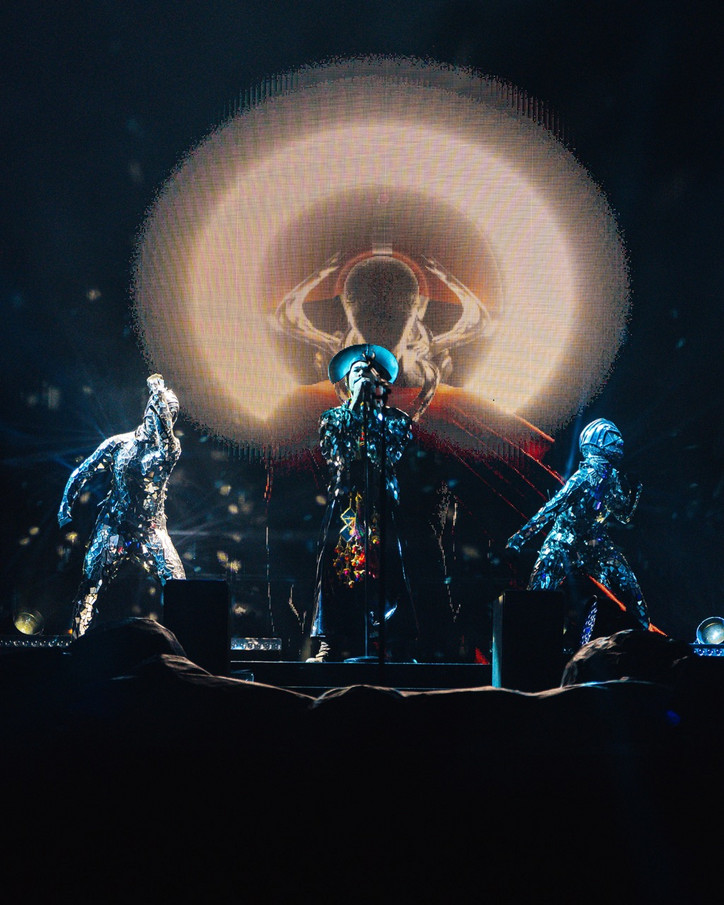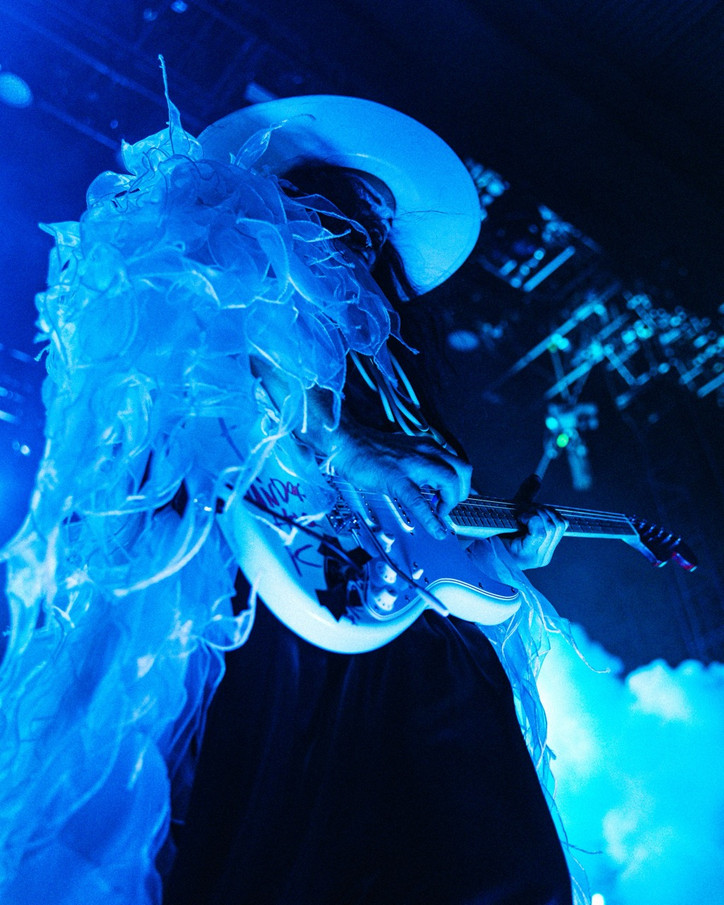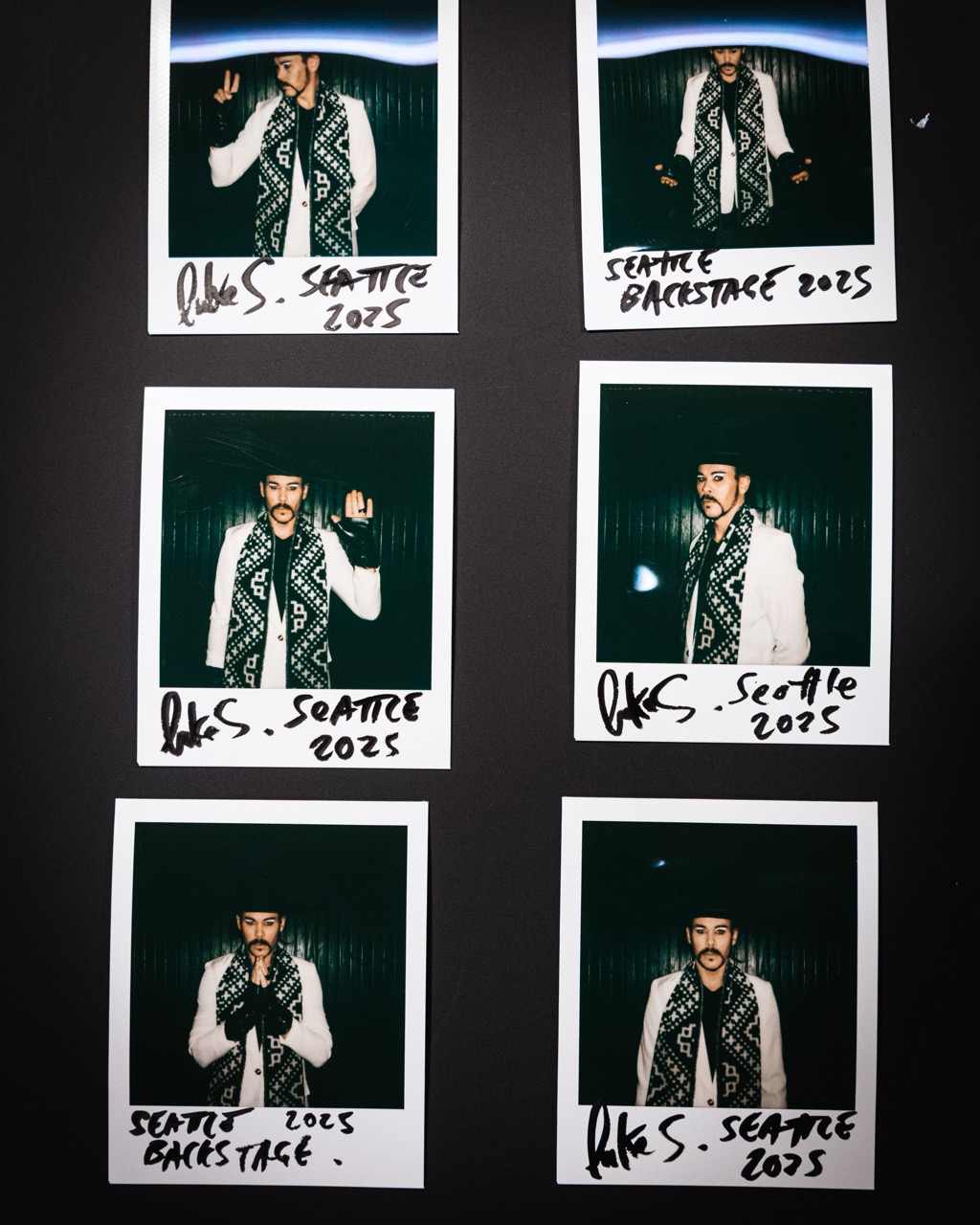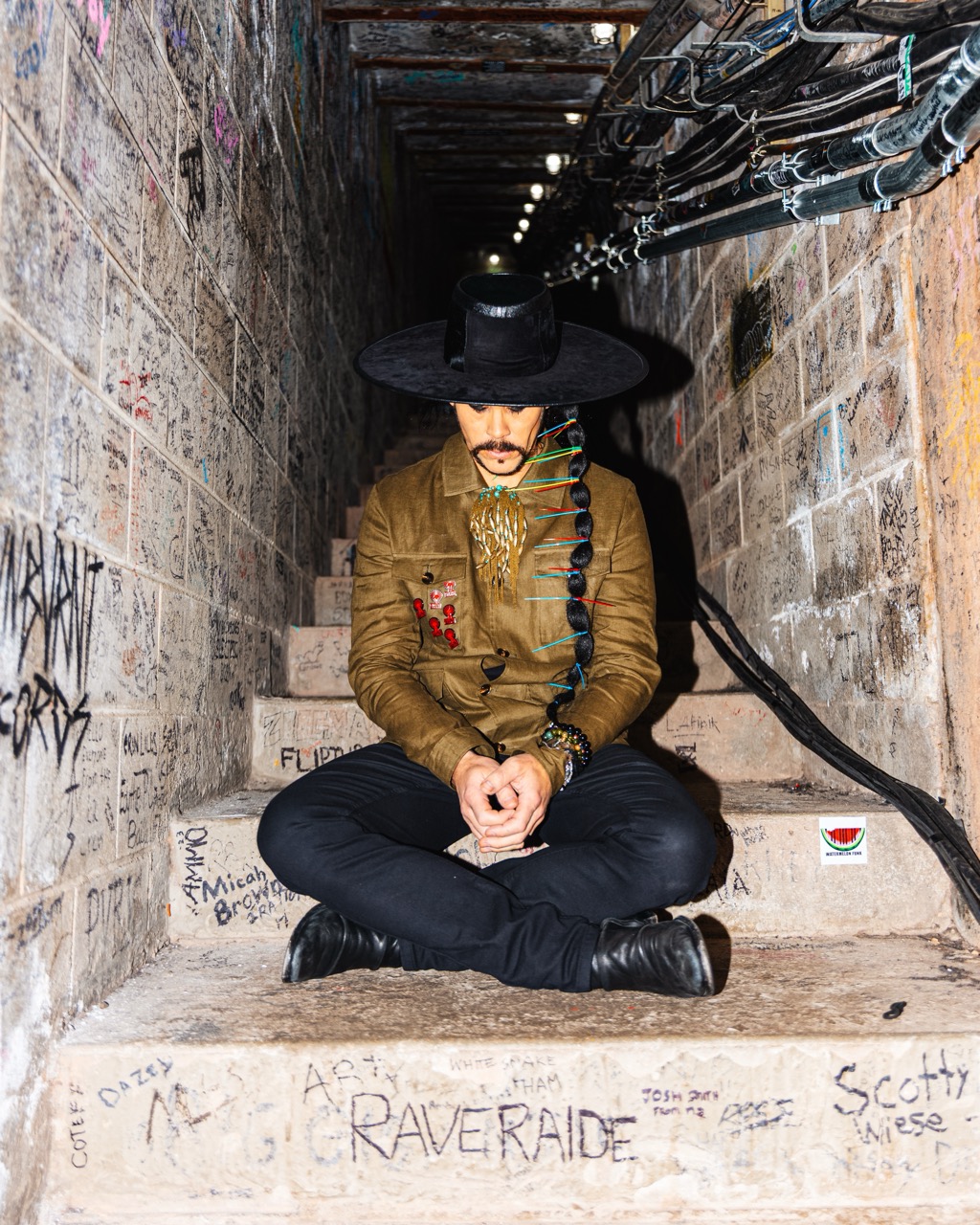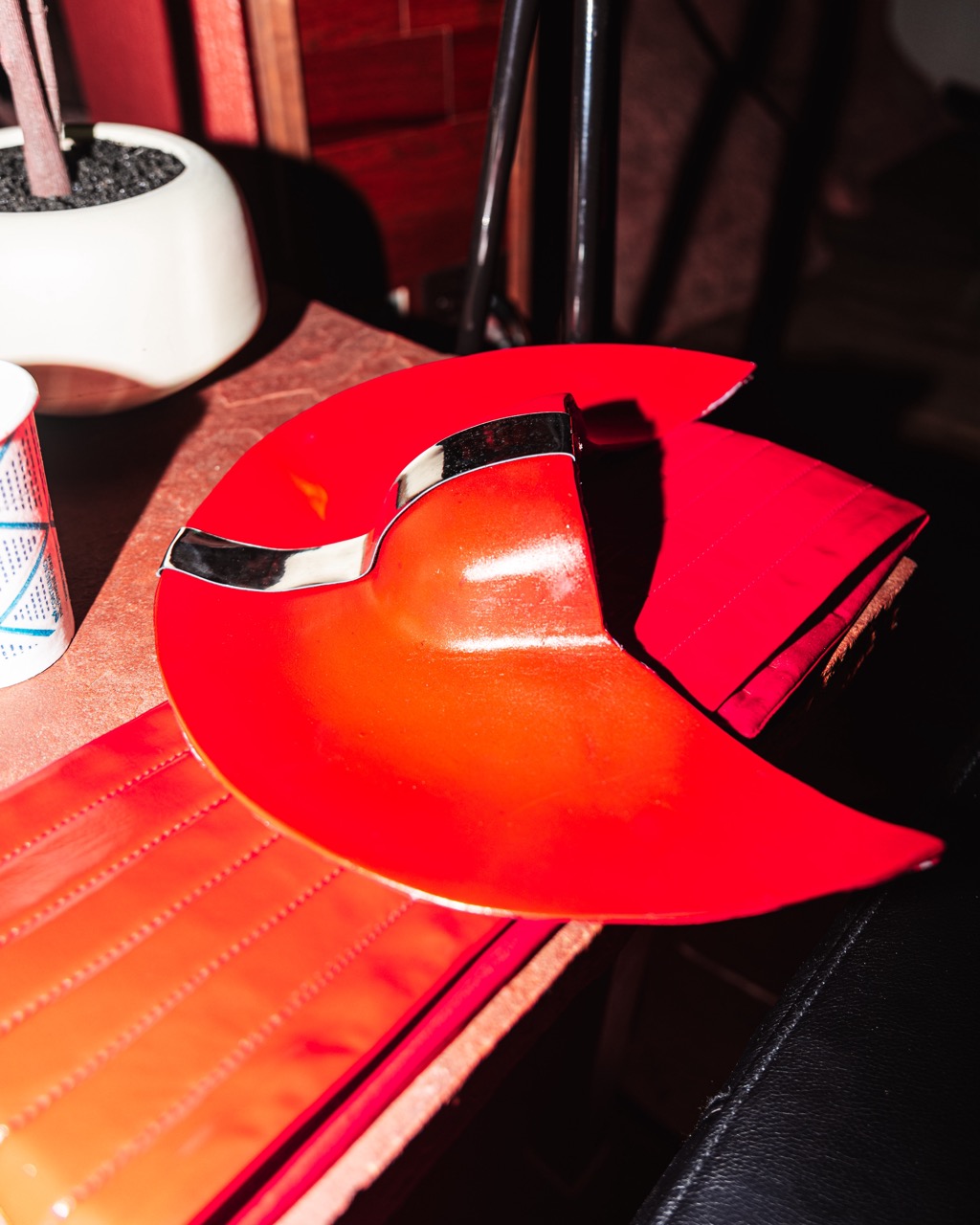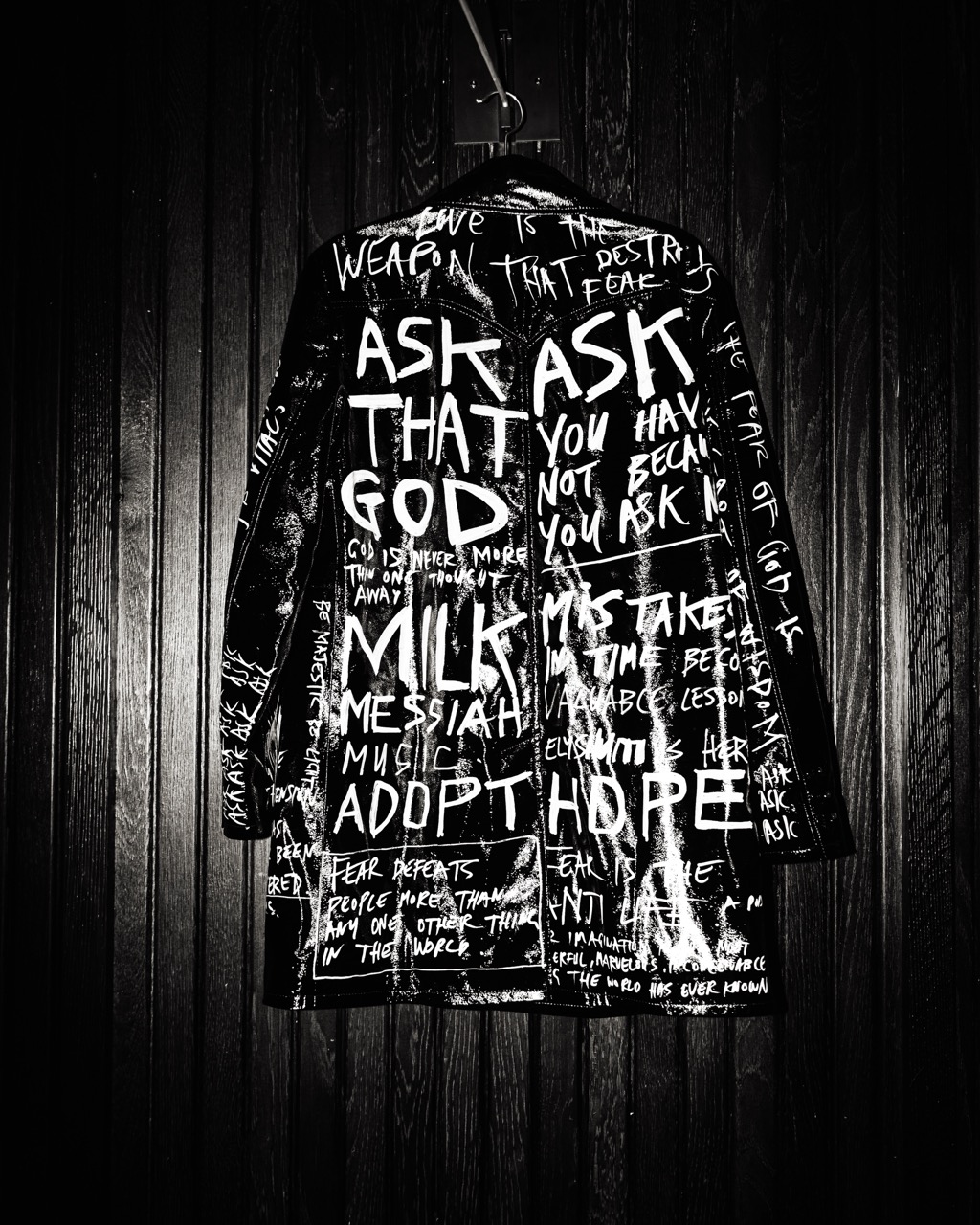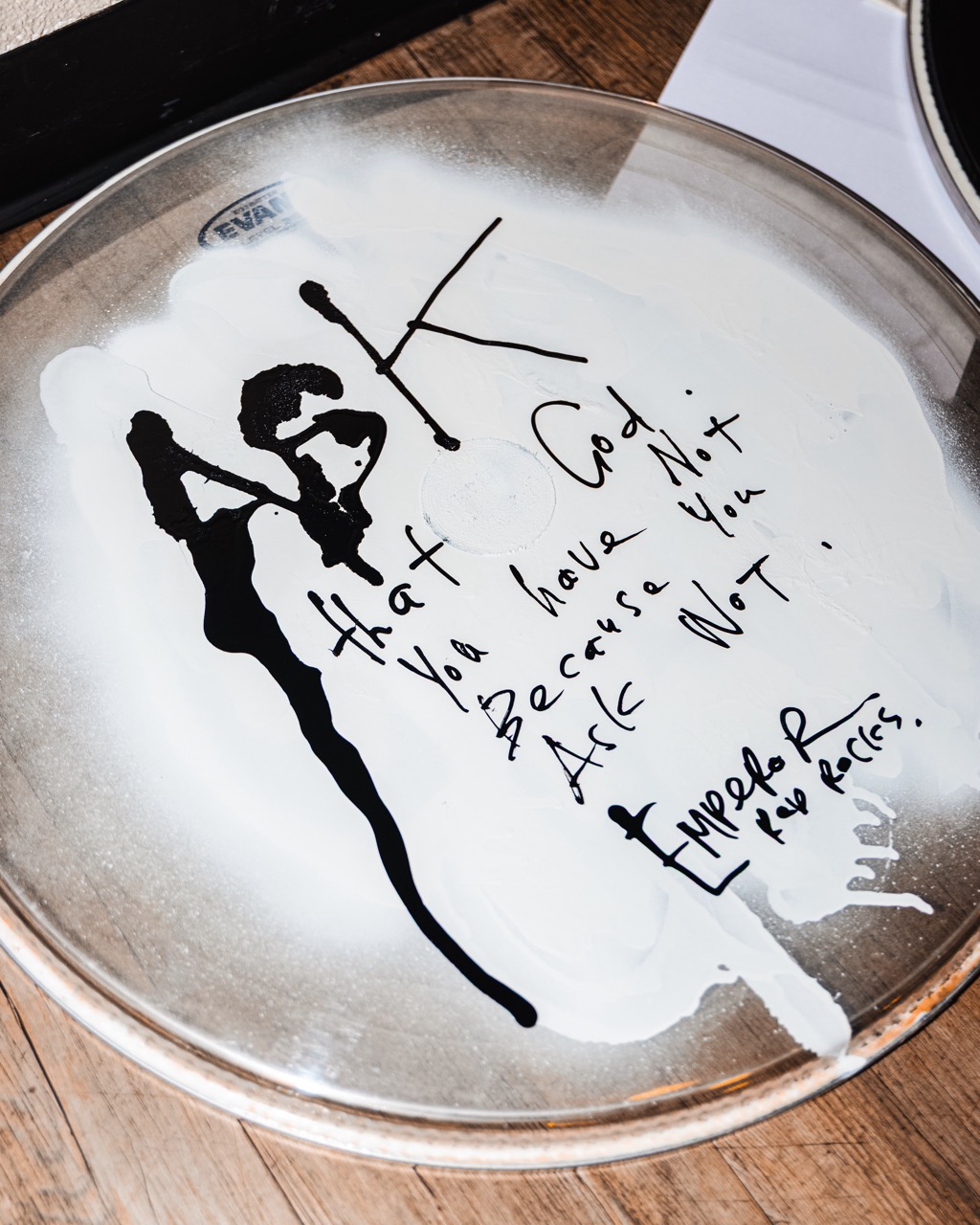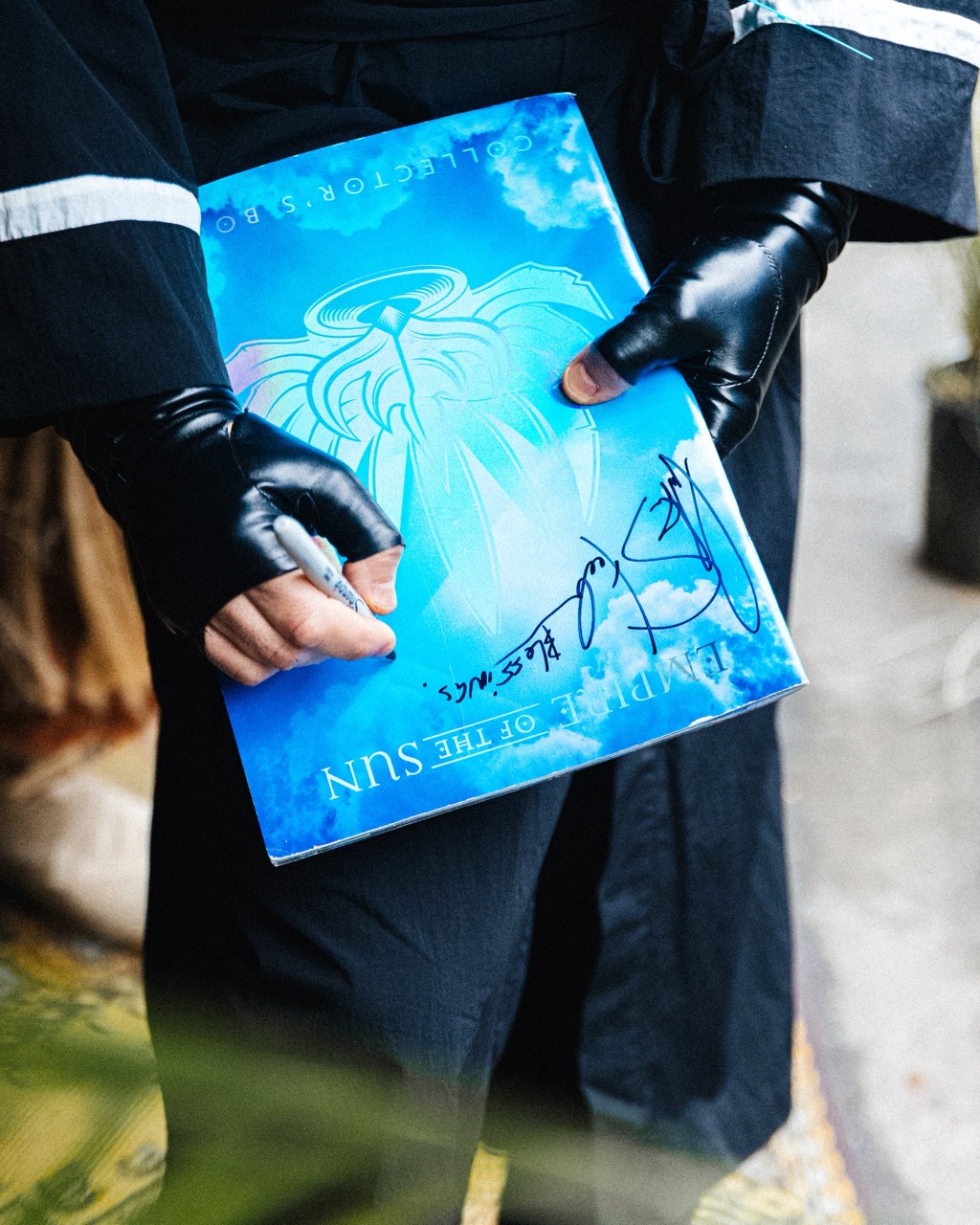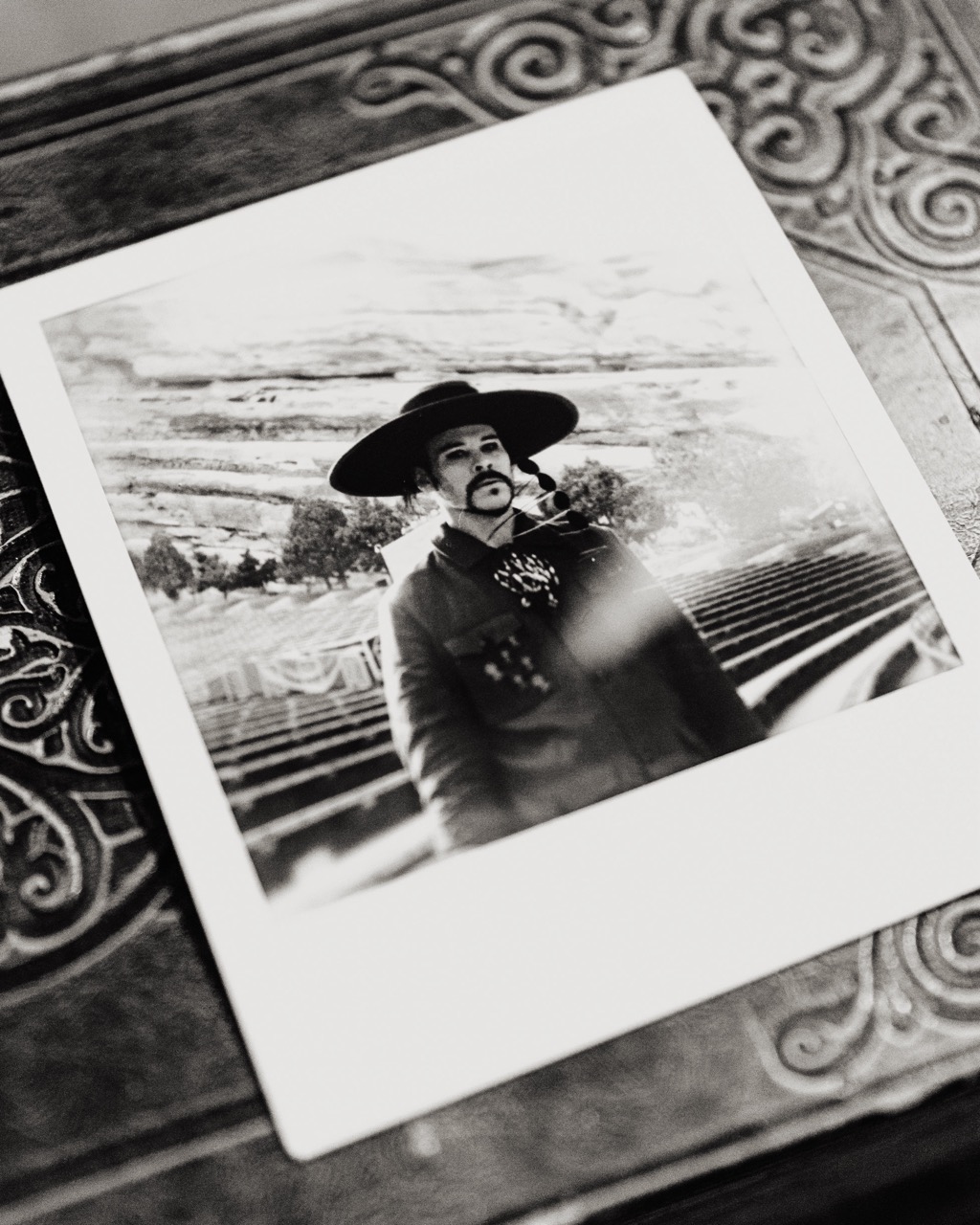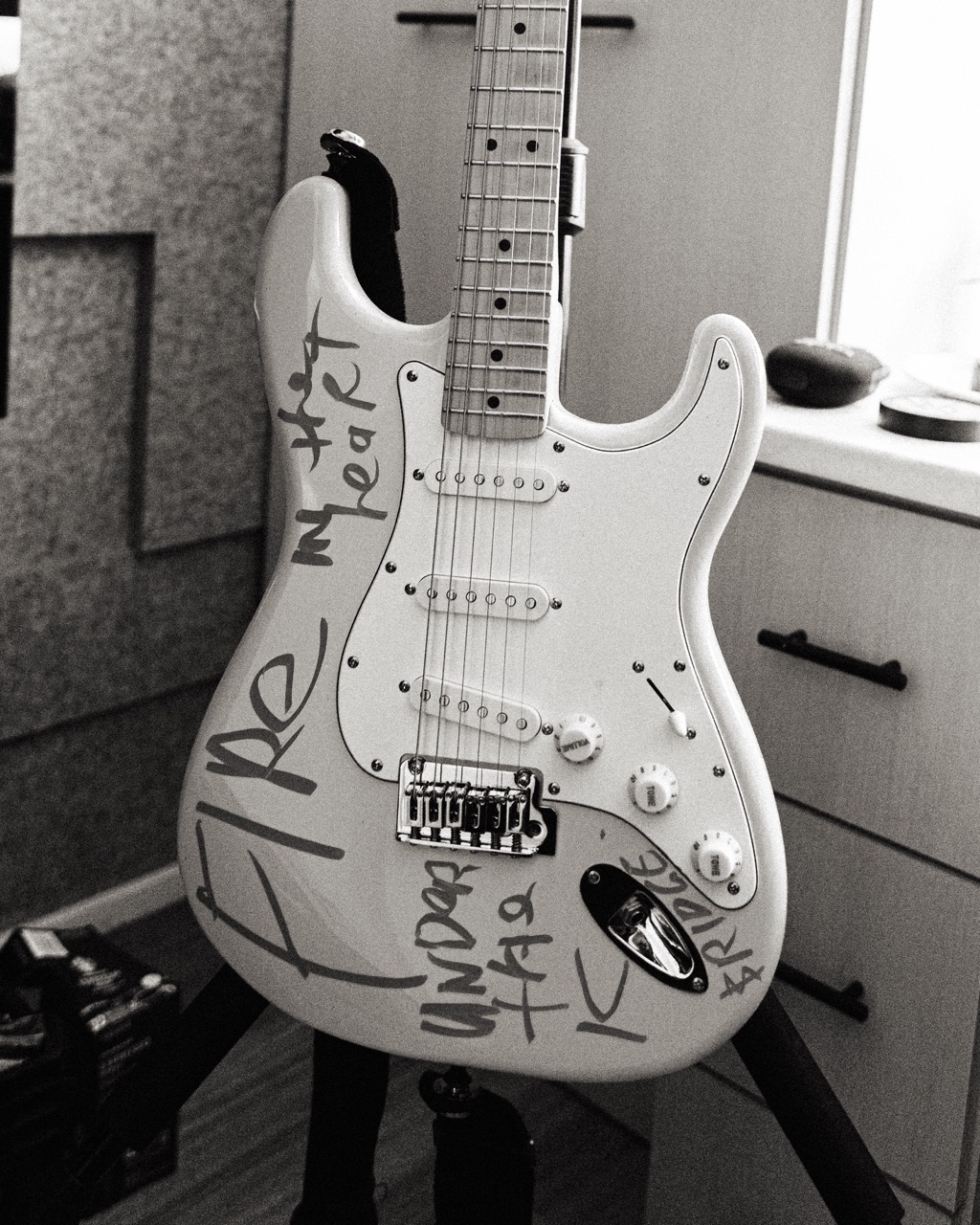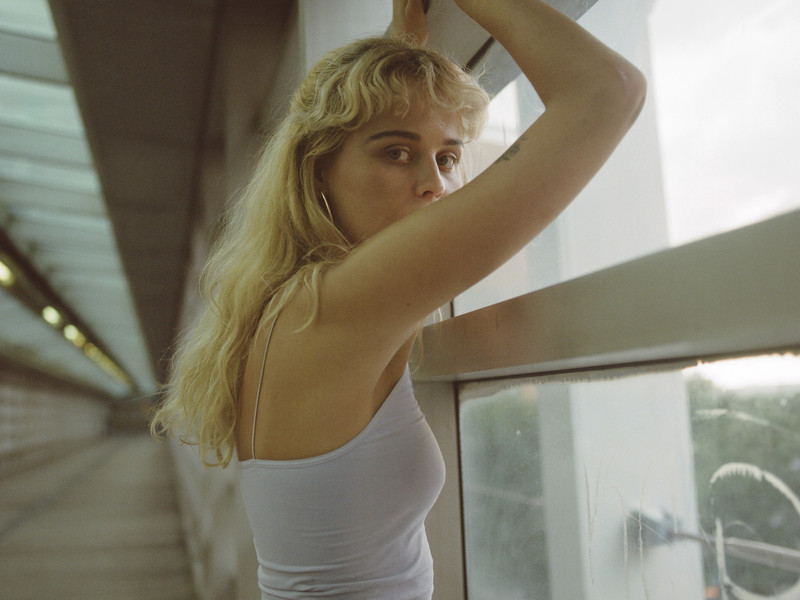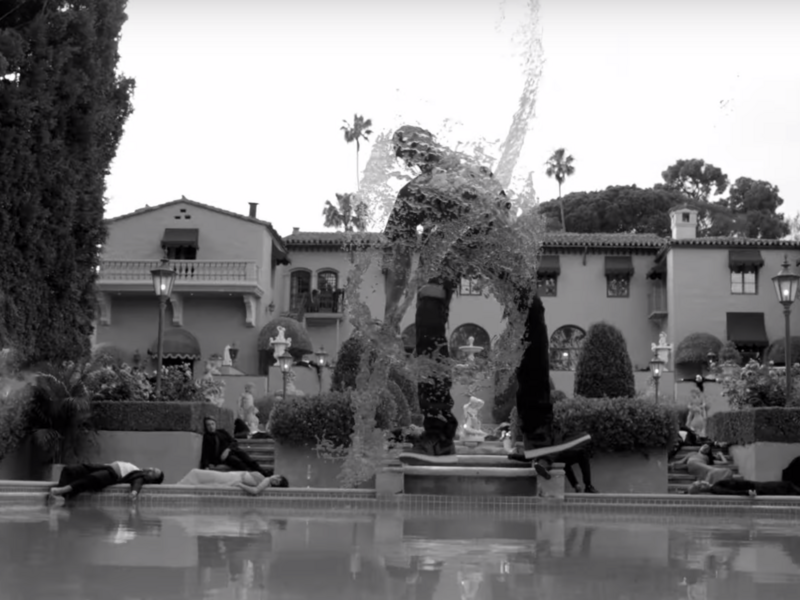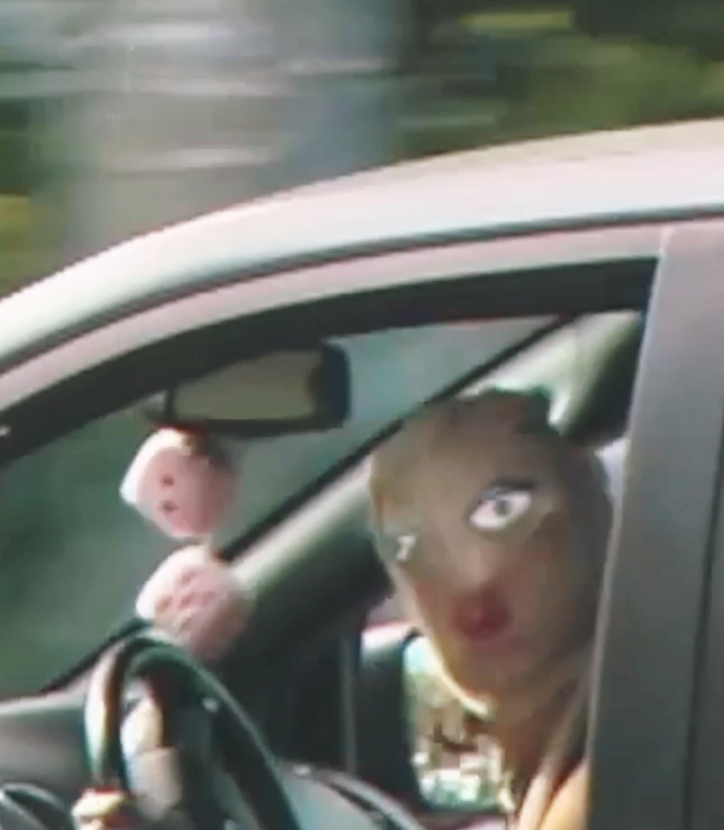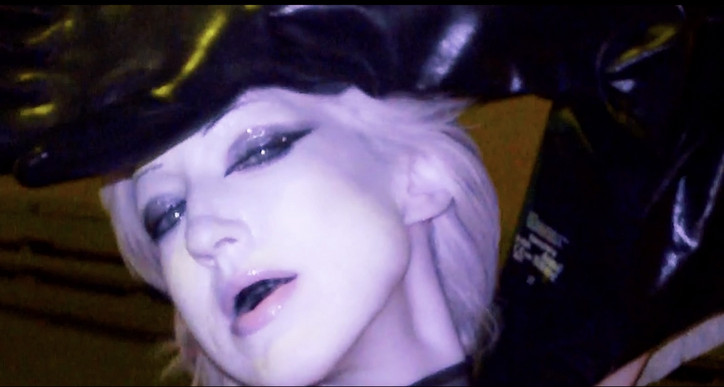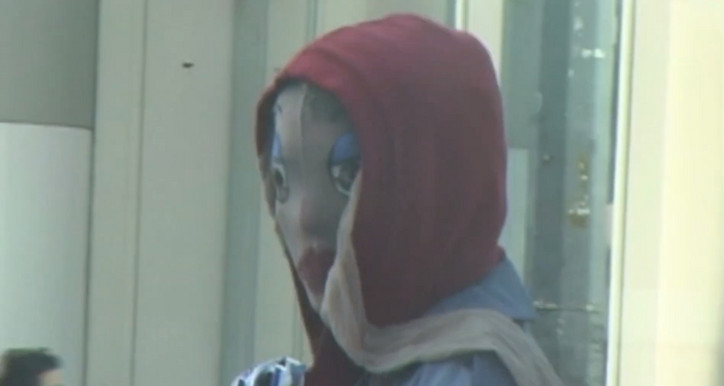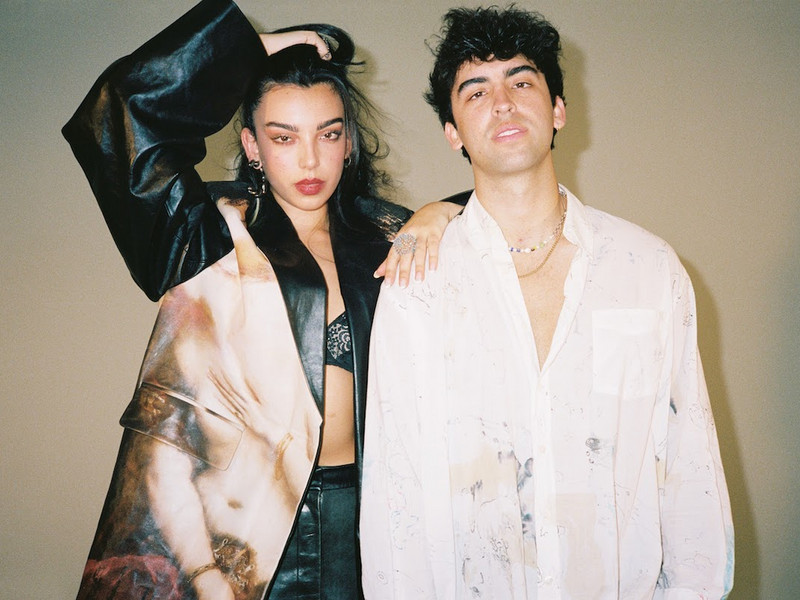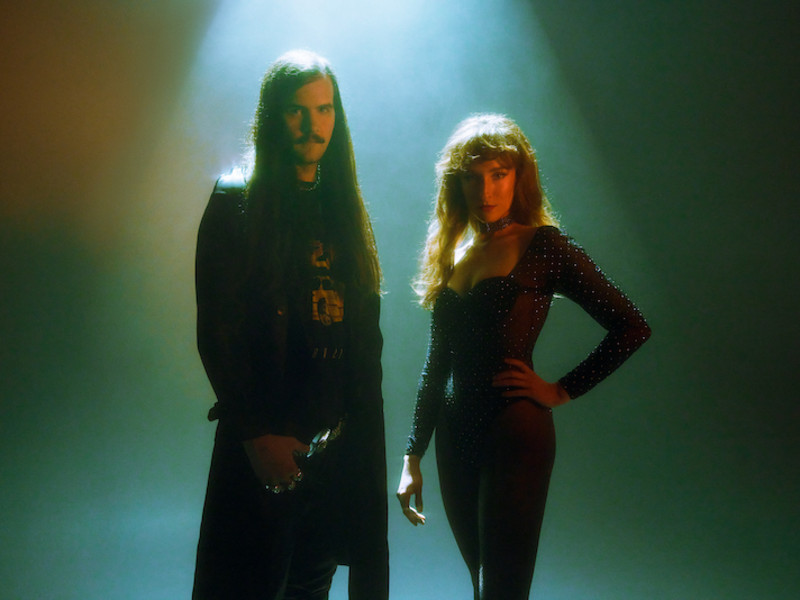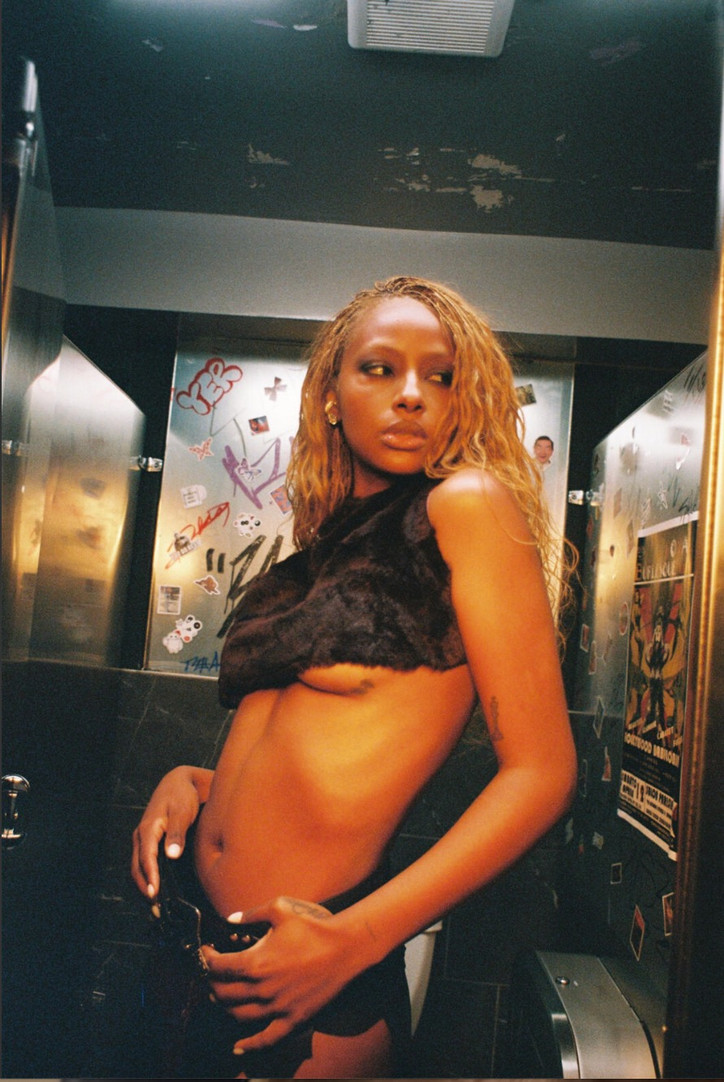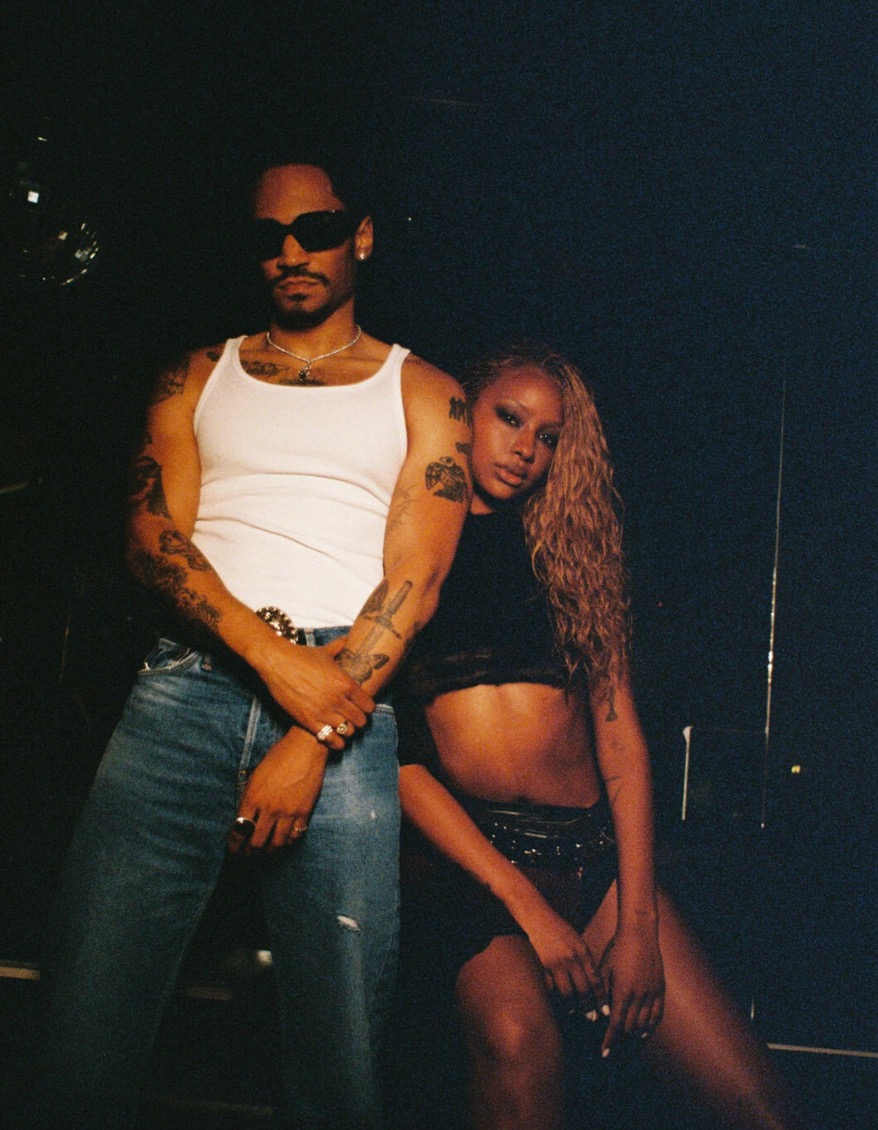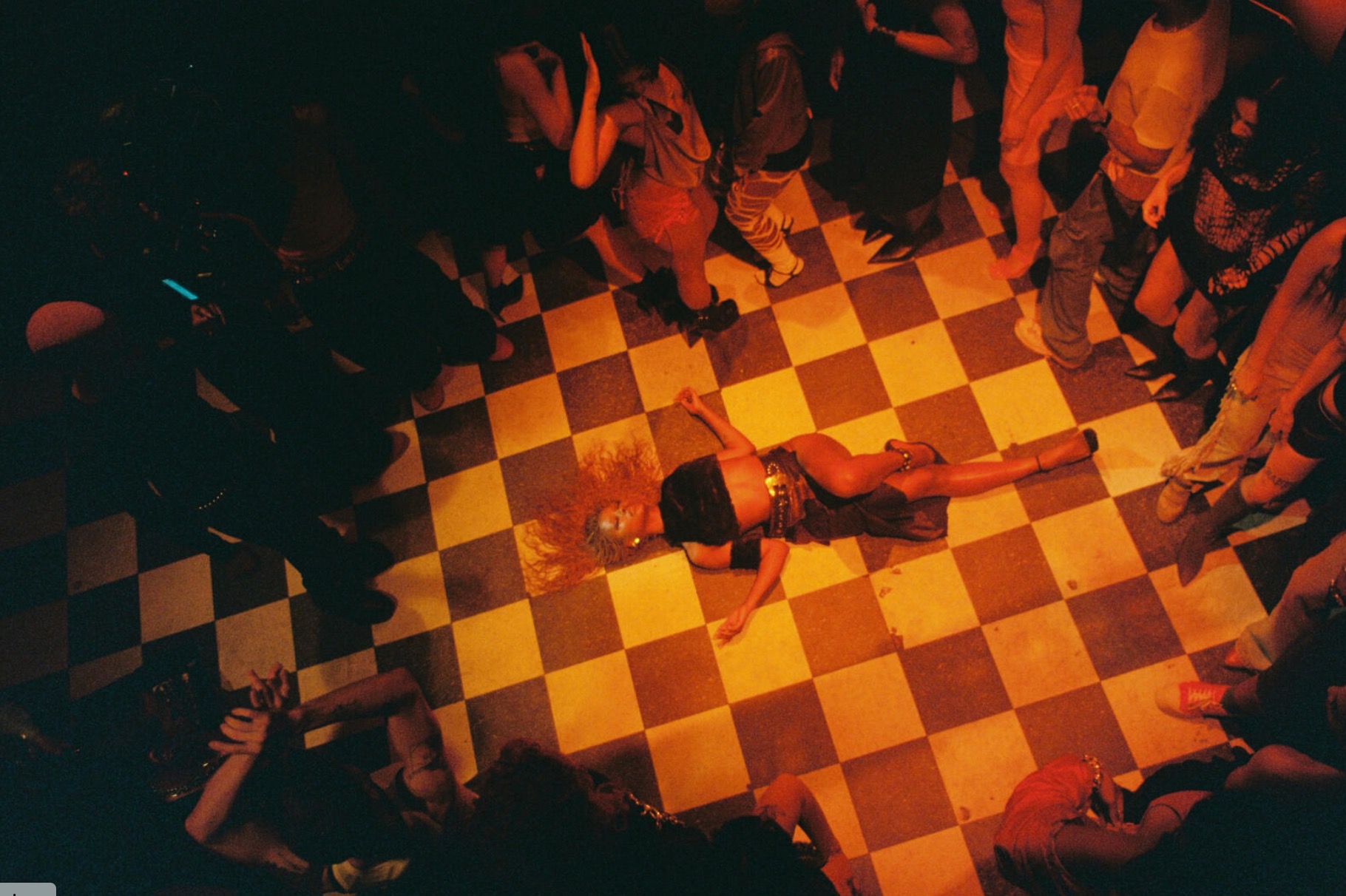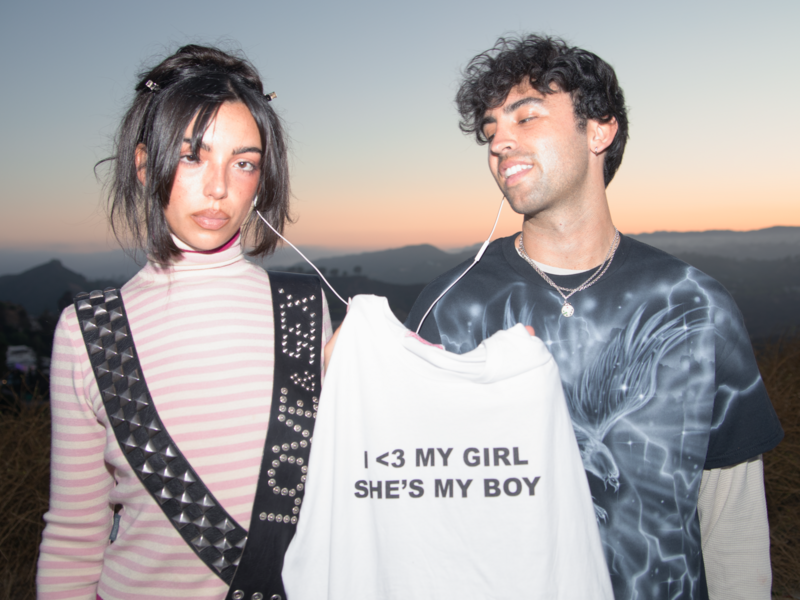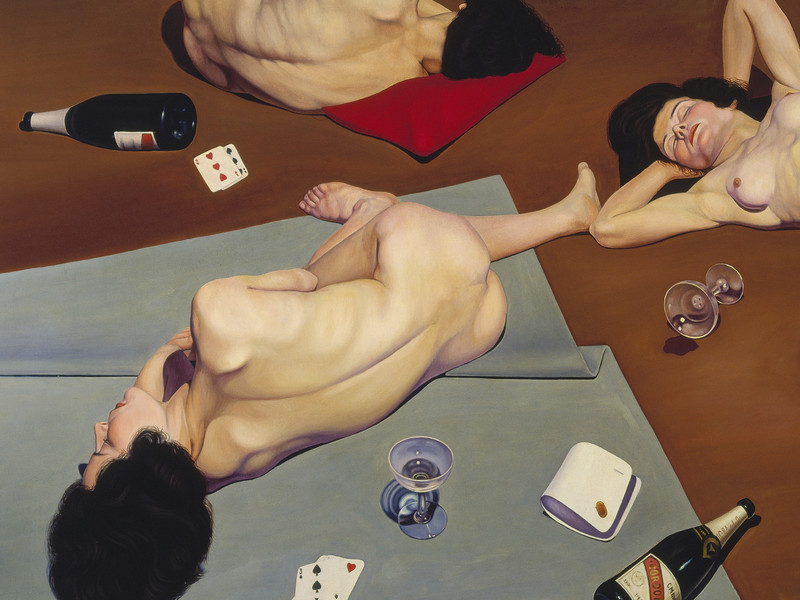Superbody is the Maximalist Pop Duo We Need
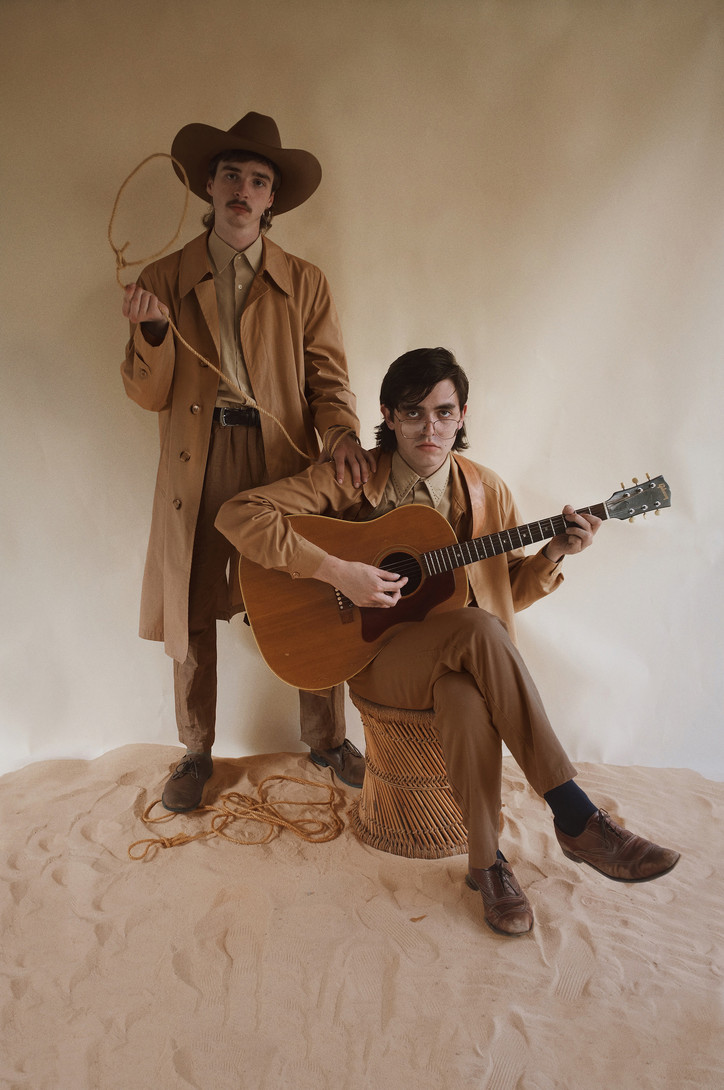
Could you describe your aesthetic? It’s very distinct.
Caleb—Our whole mission statement for the past couple years has just been to completely create as maximalist of a pop experience, from a DIY place, that we can. What we obsess over is giving whoever is aware of us as large and overwhelming of an experience of a small indie band as they can get. A lot of that is a giant antithesis to a lot of what we see through fan culture, in the sense of the stream-of-consciousness of constantly being like, “We’re in the studio! We’re making a video!” We just get off on keeping things to ourselves as much as possible and saving up all the money and never talking to anyone outside of who we need for projects, and then just dropping it in the sense of how Katy Perry would nowadays.
[Gregg and I] are just doing our best to try to emulate a full traditional team, I guess—to create a multi-media visual and audio experience for someone. For the most part, me and Gregg are both given the roles of making the songs, producing the songs, performing the songs, creating the videos and creative directing. We think “good” bands are those that tackle every art form they possible can. And not getting wrapped up in DIY culture is amazing, because a lot of the time, DIY really just turns into hanging out with your friends instead of creating.
You said that you get off on privacy.
Robert—Well, yeah. It’s just now especially, everything is so stream-of-consciousness because of Instagram stories, or just the timing of everybody has to constantly find a way to stay relevant in the sense of, “I’m working I’m working I’m working – I promise I’m working on something!” And then when the day comes that you actually put out a project, everybody’s like, “That’s not exciting. I saw every step of that process.”
You also mentioned Katy Perry. I saw that she was doing this three-day live stream on YouTube to promote her new album.
R—Yes! I was just looking into that this morning. What’s so interesting to me about pop music right now is that every huge pop artist is just completely, with each release, changing the way music is released. The PR around it, starting back with the Taylor Swift stuff a couple years ago surrounding which streaming services you pick and even recently with the way Kanye rolled out The Life of Pablo. Each one of those people is completely taking this weird approach because they can, and there’s no set format to do it anymore. If I had a platform like that, I would absolutely love to find a way to be creative just within your PR. It’s all about being a talking point in whatever possible way you can.
I thought the Katy Perry thing was genius, in a Big Brother kind of way. As a duo, how do you go about coming up with new ways to promote your music? New tactics?
R—My whole psychology, and I know that Caleb agrees with this, is that this is the best time to be a multimedia artist like this, because as long as you can catalogue yourself online properly, anything can happen.
C—I think a lot of people take missteps by not not respecting the package of their art. We’ve never been the band to just sit something on a Bandcamp page, or a Soundcloud. Because that’s just the most boring package. Even if the art shines through and the art’s incredible, it’s just always depressing to me to see that package.
And I know we’re still in this weird transition period where record labels are trying to survive even though they’re dinosaurs, and there’s no more “shelf space” like in a record store where older records had to be moved off of a space that was meant to be occupied by new records. Now, it’s just constant streams of, “New record! New record!” It gets overwhelming and you can’t cycle through it, so why would you already shoot yourself in the foot by putting that up on a blank Bandcamp or Soundcloud page? When premiering new tracks, we almost always present a traditional pop video with it. In order for you to fully understand even what we’re doing, I like for new listeners to see the video first.
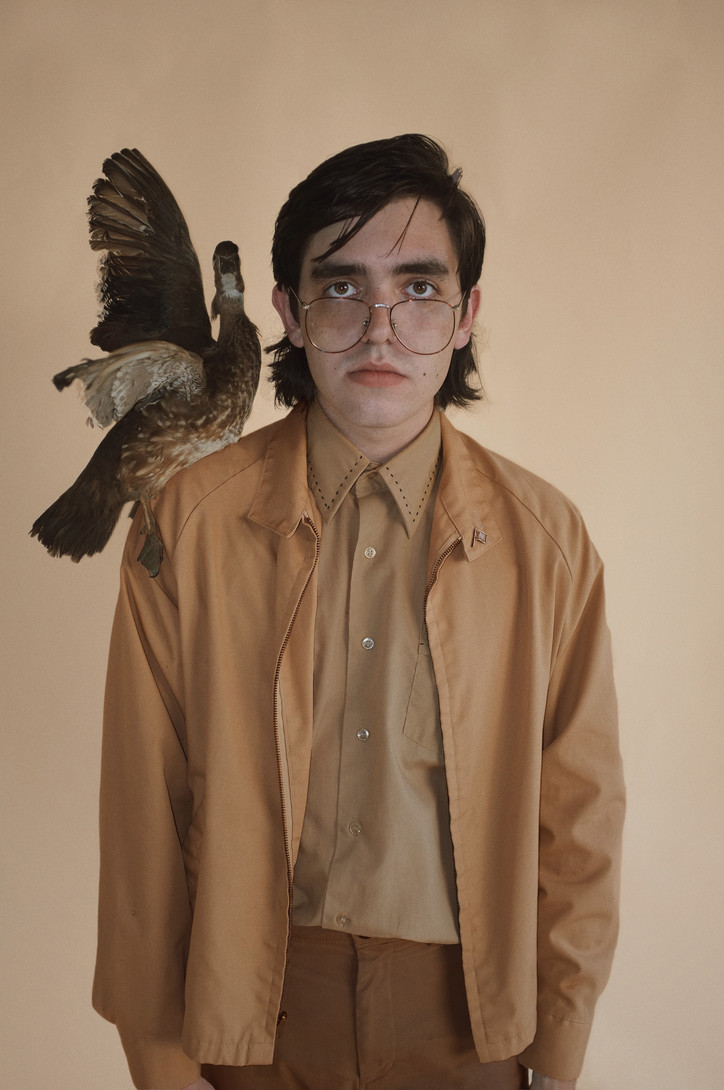

What are your favourite music releases of this year? Do you like the direction pop music is going?
R—Yes. Both Caleb and me completely agree on that. I think music has progressively gotten better because it’s competing with underground artists, in a sense, because underground artists can now grab just as much attention as a pop artist with good releases. Anybody that records technically competes, if we’re looking at this though the lens of seeing, if we’re looking at music as this capitalistic thing, you’re competing. Hip hop is so creative right now because of underground hip hop on Soundcloud. You can chart on Billboard now with just a Soundcloud link, whereas before you had to go through these pre-historic channels. But, I guess as far as new music goes, right now that new Katy Perry is what I’m listening to. Also, the new Phoenix album actually has all these references to 70’s Italian disco and is by far the best songs they’ve ever written, and the production is right down our alley. I really hope it does well.
If it was possible to make a budgeted underground movie that could stand up quality-wise to films that you could go to the theatre and see, would the newest movies progressively get better? That’s the reason I think music has gotten progressively better. You walk into any indie store right now and Mac Demarco’s new record is playing and the Porches record from last year is sitting right next to the major pop releases, and both of those records are home recorded. There’s no equivalent of that in almost any other form of art right now.
I like that you guys aren’t afraid to appreciate pop music like the new Katy Perry record. I think this openness is encapsulated by the title of your record, Youth Music. That’s so vague nowadays, because what is “youth music”? It could be anything.
R—Exactly, a big part of [choosing] that [title] was that it feels huge, and the topic of the record was huge. I have slowly lost a lot of the "wonder" when it comes to new music. Even though I’m still so obsessed with it, I feel like four or five years ago when I was in school, following bands and music culture would completely absorb my life. I just wanted to make a record with Caleb that had enough culture around it so that people could feel the obsession that both of us felt when we were young.
C—For me, a part of appreciating modern pop music is the fact that, by its own nature, a lot of indie music has this goal of trying to win you over with authenticity. By its own nature, it’s inauthentic.
R—You’re marketing your authenticity.
C—If you’re trying to market authenticity, it’s inauthentic in the first place. At least on face value with pop music, you understand what you’re going to get. I like that, I don’t like the fake message of authenticity, and authenticity is boring. When you can do whatever you want and it’s boundless with technology and your mind, why would you choose to make something “authentic”, when we already have to deal with real life enough?
I just kind of get sick of that entire, “Oh, I’m going to dismiss anything popular because it’s inauthentic.” There’s this whole argument about ghostwriters right now, and I just think you should completely accept collaboration in music as long as it produces a better product in the end. People think it’s inauthentic if there’s 10 people sitting in the room writing the song, but that group is coming up with better songs. They are there for a job, and that job is to make good content.
Have you guys heard the new Selena Gomez song, “Bad Liar”? It samples Talking Heads, which is interesting when talking about authenticity, because in 2017 she can do that. She can sample Talking Heads and still be pure pop.
C—That song was blowing my mind. I know her last single was minimal, but the direction of that sample and the way the melodies worked, and the Petra Collins-directed video… All of these artists are dipping into “indie” for cred, but it’s still hugely pop. A lot of what Carly Rae did a couple years ago where she included Dev Hynes, parading them around on Saturday Night Live for indie cred—yet it’s still the hugest pop shit in the world. It’s incredible to me.
It goes back to the conversation we were having, where Carly Rae is almost having to compete with Dev Hynes. It’s like The Weeknd sampling “Pale Shelter” by Tears for Fear. You can just build a song by appropriating from another artist. I don’t know if it’s the producer of The Weeknd track showcasing their own music taste into the track, which I think is bizarre to be able to show and influence like that, or if it’s an appeal to a demographic. But it doesn’t matter in the long run, because either way people are going to listen to that song because it’s awesome, you know?
Also, how much of an input do you think Selena Gomez has on that?
R—It really depends on the team. Most of the time, they are truly the figurehead calling most of the shots.
C—I think it probably depends. I mean, we know that Beyoncé, at least according to whoever, had the majority of the creative control of her record.
R—My whole stance on that is no matter what, and Caleb agrees with this, you have to respect bigger artists more than indie artists because they’re tackling more culture, they’re getting more done, they have more money. There’s a reason they’re on the charts. Like that’s always the point I say to myself—whether you like that song or not, it’s polarising you for a reason and you’re hearing it on the radio for a reason. It’s like this 14-year-old mentality, but I’m 23 and I still see people around me that think that people at the top of music are just dumb. When I was fifteen and heard “Fireflies” by Owl City, I was like, “This is stupid! Everybody involved in this is stupid!” No, they’re geniuses and there’s a reason you’re hearing it on your radio channel.
C—If somebody with that big of a budget, that popular of a song, is enough to make an audience think they are stupid, they’re geniuses.
There’s also this conspiracy theory I saw going around that Solange actually comes up with all of Beyoncé’s ideas, and she just uses them. Also, when you think about the last record (Lemonade), none of the songs actually went to the top of the Billboard charts, but it’s more about cultural influence it seems..
R—Exactly. It’s all about the hype of having an experimental release.
C—How incredible is it to have artists at that level like Beyoncé or Kanye West and for them to be able to release whatever they want? They have this automatic audience. They can do whatever they want, and then they are picking and choosing to make things that answer to the artistic statement they want to make instead of just making something as a commodity.
R—I mean, that’s kind of what we lean towards, to be honest—novelty songs. Our ultimate goal is to be a “singles band”.
I feel like a lot of this democratization comes from the freedom of the internet. Lil Yachty got popular on Soundcloud, and now he’s the most marketable young rapper out there. How connected are you guys to the internet? And how does this influence your work?
C—A thing I always say is that you don’t know how to make a good tweet or Instagram post unless you look at them all day. It’s simple, but you need context, always. I would like to, and we’ve tried, to completely shut ourselves off from everything in order to make good art, but that just doesn’t work anymore. How do you think you’re going to properly display your art online unless you’re looking up how different art is displayed and then putting yourself into that?
We consider ourselves an internet band before a Chattanooga or Atlanta band. A lot of local band culture just sells yourself short, especially from me absorbing band culture for so long. I want to display our art to anyone, not just anyone in the southeast area that likes synth-pop.
R—Without the internet, how would we be able to exist as an entity? Let me rephrase: I don’t think we’d exist without the internet. We’d be homeless street musicians and that’s not what we’re interested in. And then when it comes to the way labels work right now, no one’s signing us unless we can prove ourselves on the internet first. And furthermore, how appealing is actually getting signed to a record label now? Not really that appealing.
There’s also a lot of pulling from previous eras nowadays. How do you think nostalgia produces new artistic forms? How does looking back fondly at stuff allow you to move forward?
C—I think about this often. We reference a lot of pop culture and tropes from the 80s, but me and Robert have never existed in the 1980s. We were born in the nineties. So it’s just very odd now that you have sets of people, us included, referencing these things from the past that you didn’t exist in because you have access to all these cultures online. You’re able to go back in time and re-contextualize things from the past and reform those into your own artwork.
It’s almost like how on Spotify there’s a playlist for “driving music” or for a “rainy-day.” Who decided that those songs were driving songs? Does the artist have that in mind when they created it, or is it a curator who decides what something is? It’s very odd to think of who decides what is what in art. It’s very fucking confusing and a little bit too big of a question to answer. How do you feel about it?
I’m very obsessed with how our generation is getting kind of tired of “internet culture,” so we’re repurposing old things. I guess it is a difficult question to answer, but super interesting.
C—Yeah, it’s also bizarre to think that in the future, Instagram filters are going to be on all of these photographs, and that’s going to be something people are nostalgic about. I think our generation will be remembered as a generation that samples and re-contextualizes everything.
I feel like in maybe ten years, Gucci will use the classic Instagram filter on an ad campaign... I mean they’ve already been using memes.
C—People are already nostalgic about things that happened two or three years ago because of how well-catalogued everything is on the internet. A lot of what excites me about music is that everything happening in a lot of British electronic music, like SOPHIE or any artist involved in PC Music, is super interesting because those are the few people who are truly trying. Those artists and other huge pop artists are truly trying to peak into the future of what music is. It’s exciting because in the 70s, 80s, and 90s, everybody was trying to do that.
R—The only thing I can think of that was huge and had a nostalgic aesthetic in the 80s would be The Go-Go’s, who tried to present themselves as a 60s girl band. I can’t think of anybody else that did that.
C—At the same time, there was all this nostalgia in the 70s for the 50s.
R—I’m talking about popular music in the 80s that we love was all forward-thinking. Everybody was listening to that the way that we listen to SOPHIE or AG Cook now and were like, “Oh my God, how did they even make this?”
To wrap up this conversation, what emoji describes each of you best?
C—A cowboy hat!
R—Oh you stole mine!
C—Let Robert say that.
R—Yeah, I get the cowboy hat.
C—Let’s just do cowboy hat collectively.
Superbody's sophomore album Youth Music is available now.
